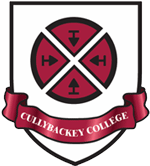Information and Communications Technology (ICT) covers the use of multimedia computers and connectivity along with the networks and services based on them. All pupils are given the opportunity to develop a competence and understanding of ICT and apply ICT on a cross-curricular basis regardless of ability. All pupils are given a wide range of experiences in ICT and opportunities to apply their skills and knowledge.
Subject:
ICT
Levels Taught:
KS3
GCSE/KS4
Post 16
Staff:
Mr P Beattie – (HoD)
Mrs K Rodgers
Mrs D Wilkinson
Mrs J Greer
KS3:
(Subject/Topic Content)
Pupils are exposed to a wide range of software applications during Years 8-10. We aim to give a breadth of study that allows pupils to use ICT in other subject areas confidently.
Activities include:
- Word processing (Google Docs/MS Word)
- Emailing (MS Outlook)
- Data handling (MS Access)
- Presentation (Google Slides/MS PowerPoint)
- Modelling (Google Sheets/MS Excel)
- Web Design (Google Sites)
- Video making (Movie Maker/Photo Story)
- Programming (Micro:bits/Scratch)
- Game Making (Game Maker)
- Collaboration (Google Classroom)
KS3:
(Additional Links)
LINKS COMING SOON
GCSE/KS4:
(Subject/Topic Content)
OCN Certificate in Information Technology Applications
Course Content:
Social Media
In this unit you will learn how to use social media safely. You will learn about the opportunities and threats associated with using social media.
Websites Software
In this unit, you will learn how to develop a basic website. You will learn how to document its creation and how to test its performance.
Presentation Software
In this unit you will learn how to use presentation software, including some advanced features.
Word Processing Software
In this unit you will learn how to use word processing software, including the use of styles and tables.
Email Software Skills
In this unit you will learn how to use email effectively. You will learn how to use the various features within email software.
Examination Details:
- None
Controlled Assessment:
- 100% coursework
GCSE Digital Technology
Course Content:
Unit 1: Digital Technology
In this unit you will learn how to use spreadsheet and database packages to manipulate data and provide information. You will learn about the components of a computer system and investigate suitable input and output devices. You will explore the use of cloud technology and its impact on gaming, file storage and sharing.
Unit 2: Digital Authoring Concepts
In this unit, you will develop an understanding of the concepts involved in the development of digital systems.
Unit 3: Digital Authoring Practice
In this unit you will design, build, test and evaluate a multimedia solution.
Examination Details:
- Unit 1 – a 1-hour paper at the end of Year 11 – 30% of final grade
- Unit 2 – a 1½-hour paper at the end of Year 12 – 40% of final grade
Controlled Assessment:
- Unit 3 – 1 task – 30% of the final grade
GCSE/KS4:
(Additional Links)
LINKS COMING SOON
Post 16:
(Subject/Topic Content)
Cambridge Technical in IT
Course Content:
Unit 1: Fundamentals of IT
A sound understanding of IT technologies and practices is essential for IT professionals. Information learnt in this unit will provide a solid foundation in the fundamentals of hardware, networks, software, the ethical use of computers and how business uses IT.
Unit 2: Global Information
This unit will provide you with a greater understanding of how organisations use information sources both internally and externally and the types of information you will encounter. The skills gained by completing this unit will give you knowledge of the functionality of information and how data is stored and processed by organisations. You will also learn about how individuals use information of various types.
Unit 6: Application Design
The world is increasingly reliant on applications that help individuals, businesses and organisations achieve specific activities or purposes. In this unit you will explore potential ideas for a new application and develop the fundamental design for it. You will then develop the designs for an application and how users will interact with it. The application that you design can be for any sector and for any purpose. You will have the opportunity to present your ideas, prototype them, and gain feedback before refining your design.
Unit 13: Social Media and Digital Marketing
The use of social media has increased massively over recent years and is now a worldwide phenomenon. Digital marketing is part of the overall process of marketing and is the use of digital media to increase awareness of a product or service. As social media offers such a wealth of data and the ability to contact potential customers in their own homes across a range of media channels, it is only natural that digital marketing seeks to use social media as part of the marketing mix for goods and services. This unit looks at digital marketing as a concept and then offers you the opportunity to explore the possible impacts, both positive and negative, that may be generated by the use of social media as a digital marketing tool.
Unit 17: Internet of Things
This unit is about the use of the internet and how it is impacting people and society. You will learn about the Internet of Everything (IoE) and how it is used. Using your knowledge, you will carry out a feasibility study for a potential idea. You will pitch your idea to potential stakeholders and use their feedback to revise your proposal.
Examination Details:
- Unit 1: Fundamentals of IT– Externally assessed (1½ hours examination)
- Unit 2: Global Information – Externally assessed (1½ hours examination based on pre-release material)
Coursework Details:
The following units will be internally assessed through a portfolio of work:
- Unit 6: Application Design
- Unit 13: Social Media and Digital Marketing
- Unit 17: Internet of Things
Post 16:
(ADDITIONAL LINKS)
LINKS COMING SOON

